What are hosted Apache Kafka services?
A hosted Apache Kafka service, often referred to as managed Apache Kafka or Kafka as a Service (KaaS), is a cloud-based solution where a third-party provider manages the infrastructure and operational aspects of an Apache Kafka cluster. This service allows organizations to leverage Kafka’s capabilities for real-time data streaming without the complexities of self-managing a distributed system.
Hosted Apache Kafka services typically offer an interface for cluster setup, scaling options, automated failover, and integrated monitoring tools. Users interact with Kafka clusters via standard APIs, but the underlying operational details, like uptime guarantees, patch management, and incident handling, are managed by the service provider.
Key features and benefits of a hosted Apache Kafka service include:
- Simplified management: The service provider handles tasks such as installation, configuration, patching, upgrades, and ongoing maintenance, reducing the operational burden on the user.
- Scalability and high availability: Managed services typically offer automated scaling capabilities to accommodate fluctuating data volumes and ensure high availability through features like automatic broker replacement and data replication.
- Reduced operational cost and expertise: By outsourcing the management to a specialized provider, organizations can minimize the need for in-house Kafka expertise and reduce the total cost of ownership.
- Focus on application development: Users can concentrate on building and deploying applications that utilize Kafka, rather than expending resources on infrastructure management.
- Security and compliance: Reputable providers offer robust security measures and often adhere to industry compliance standards, ensuring data protection and regulatory adherence.
- Monitoring and support: Hosted services usually include comprehensive monitoring tools and dedicated support from experts to assist with performance tuning, troubleshooting, and other operational concerns.
Key features and benefits of a hosted Apache Kafka service
Simplified management
One of the main advantages of hosted Apache Kafka services is the reduction in administrative overhead. Deploying and operating Kafka involves configuring Zookeeper (or its alternatives), managing partitions, balancing loads, and ensuring system health. With a managed service, these tasks are largely automated or made accessible through dashboards and APIs. This means that teams do not need to maintain deep expertise in Kafka internals.
Service providers usually offer features such as one-click cluster creation, configuration tuning, and automated backups, making it easy for organizations to get started and maintain reliable operations over time. Regular tasks such as patching, upgrading, and failover management are handled in the background.
Scalability and high availability
Hosted Kafka services scale to accommodate fluctuating workloads, which is essential for data pipelines that handle variable traffic patterns. Providers generally offer options to adjust the number of brokers, memory, and storage dynamically without service downtime.
High availability is another cornerstone, with managed Kafka solutions implementing automated failover, replication, and distributed storage. Providers often offer service-level agreements (SLAs) guaranteeing uptime and data durability.
Reduced operational cost and expertise
Operating Kafka clusters in-house demands significant investments in engineering time, both to set up the environment and to keep it running optimally. Hosted services help reduce these operational costs by centralizing expertise and automating much of the routine work. Teams can avoid expenses related to recruiting and retaining specialized Kafka administrators, as well as costs related to hardware, networking, and maintenance.
Additionally, managed services often use economies of scale to deliver reliable infrastructure at a lower cost than individual organizations could achieve on their own. The pay-as-you-go or subscription pricing models typically mean customers only pay for the resources they use.
Focus on application development
Hosted Kafka services allow engineering teams to prioritize building features and addressing business problems, rather than managing infrastructure. Developers spend less time troubleshooting Kafka clusters or worrying about version compatibility and cluster upgrades. This shift in focus accelerates innovation by allowing teams to iterate on products faster and experiment with new event-driven patterns.
By abstracting away much of the underlying complexity, managed services also lower the barrier to entry for organizations adopting real-time streaming architectures. Teams with limited Kafka experience can reliably build and deploy scalable data pipelines, event-driven microservices, or data integration workflows.
Security and compliance
Security is a top concern for any data platform, and enterprise-grade hosted Kafka services typically offer security features. These include encryption at rest and in transit, access controls, support for authentication protocols such as SSL/TLS and SASL, and integrations with identity providers for single sign-on. Managed services often stay ahead on security patching, proactively updating clusters to address new vulnerabilities.
For organizations with regulatory requirements, many Kafka providers offer compliance certifications (SOC 2, HIPAA, GDPR, etc.) and tools for managing audit logs, data retention policies, and secure networking.
Monitoring and support
Monitoring is critical for maintaining system health and resolving issues before they escalate. Hosted Kafka services provide integrated dashboards to track metrics such as throughput, latency, consumer lag, and broker health. Alerting systems can notify teams of anomalies, often before they affect application performance. These observability tools are designed to be user-friendly and accessible to both Kafka novices and experts.
In addition to monitoring, managed Kafka providers offer expert support, often with 24/7 availability and guaranteed response times. This support is vital for production systems, enabling organizations to quickly resolve incidents, request help with architectural questions, or access best-practice guidance.
Notable hosted Apache Kafka services
1. NetApp Instaclustr

Instaclustr for Kafka is a fully managed Apache Kafka streams data in real time without the headaches of operating complex infrastructure. Built for reliability, it delivers high availability, automated failover, and proactive monitoring so data pipelines stay up and running. It scales seamlessly as throughput and topics grow, providing consistent performance from pilot to production. And with expert support, streamlined provisioning, and built-in best practices, Instaclustr makes Kafka easier to adopt and operate—so organizations can focus on building real-time applications, not managing clusters.
- High availability and automated failover: Keeps streams running during outages so you avoid downtime and lost messages.
- Seamless horizontal scalability: Adds brokers and storage on demand to handle traffic spikes without re-architecting.
- End-to-end security: Encrypts data in transit and at rest, with role-based access control and private networking to protect sensitive workloads.
- Proactive monitoring and alerting: Tracks broker health, lag, and throughput with actionable alerts so issues can be fixed before they impact users.
- Managed upgrades and patching: Applies tested Kafka and OS updates, reducing risk and freeing teams up from maintenance windows.
- Performance tuning out of the box: Uses proven configurations for partitions, replication, and retention to deliver consistent low latency.
- Self-service provisioning: Launches clusters in minutes with guided defaults, cutting setup time and complexity.
- Expert 24/7 support: Access to Kafka specialists for architecture reviews and incident response to keep data pipelines healthy.
- Multi-cloud deployment: Deploy where needed to meet latency, data residency, and cost goals.
- Compliance-ready operations: Built-in controls and auditability to help meet industry standards and internal policies.
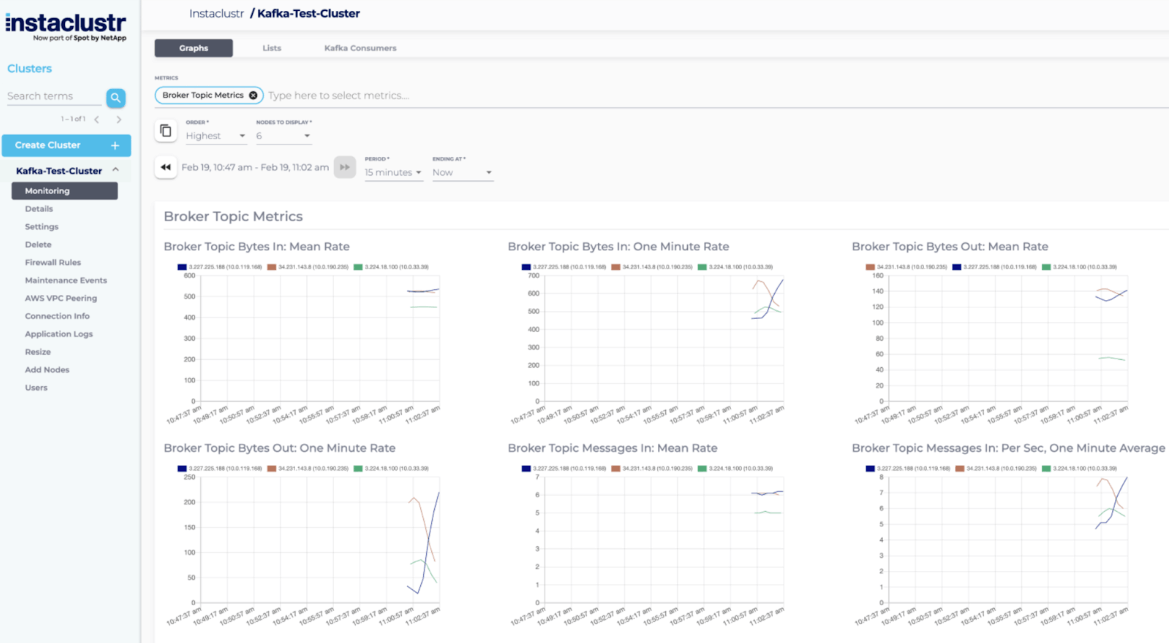
2. Confluent Cloud

Confluent Cloud is a fully managed, serverless Apache Kafka service to reduce operational complexity and cost while providing scalable, secure, and high-performance event streaming. It uses a cloud-native Kafka engine, Kora, to automatically scale resources based on workload, eliminating the need for over-provisioning and cutting infrastructure costs.
Key features include:
- Autoscaling clusters: Dynamically adjusts capacity to match workload demand, avoiding over-provisioning and reducing costs by up to 50%.
- Flexible cluster types: Basic, Standard, Enterprise, and Freight clusters tailored for different throughput, cost, and security needs.
- Multi-region and multicloud support: Replicate and sync data across clusters in different regions, clouds, or organizations using Cluster Linking.
- Enterprise security: RBAC, encryption, audit logs, and compliance-ready features for SOC 2, HIPAA, and GDPR.
- Pre-built and managed connectors: Over 120 pre-built and 80 fully managed connectors for fast integration with databases, data lakes, and analytics systems.
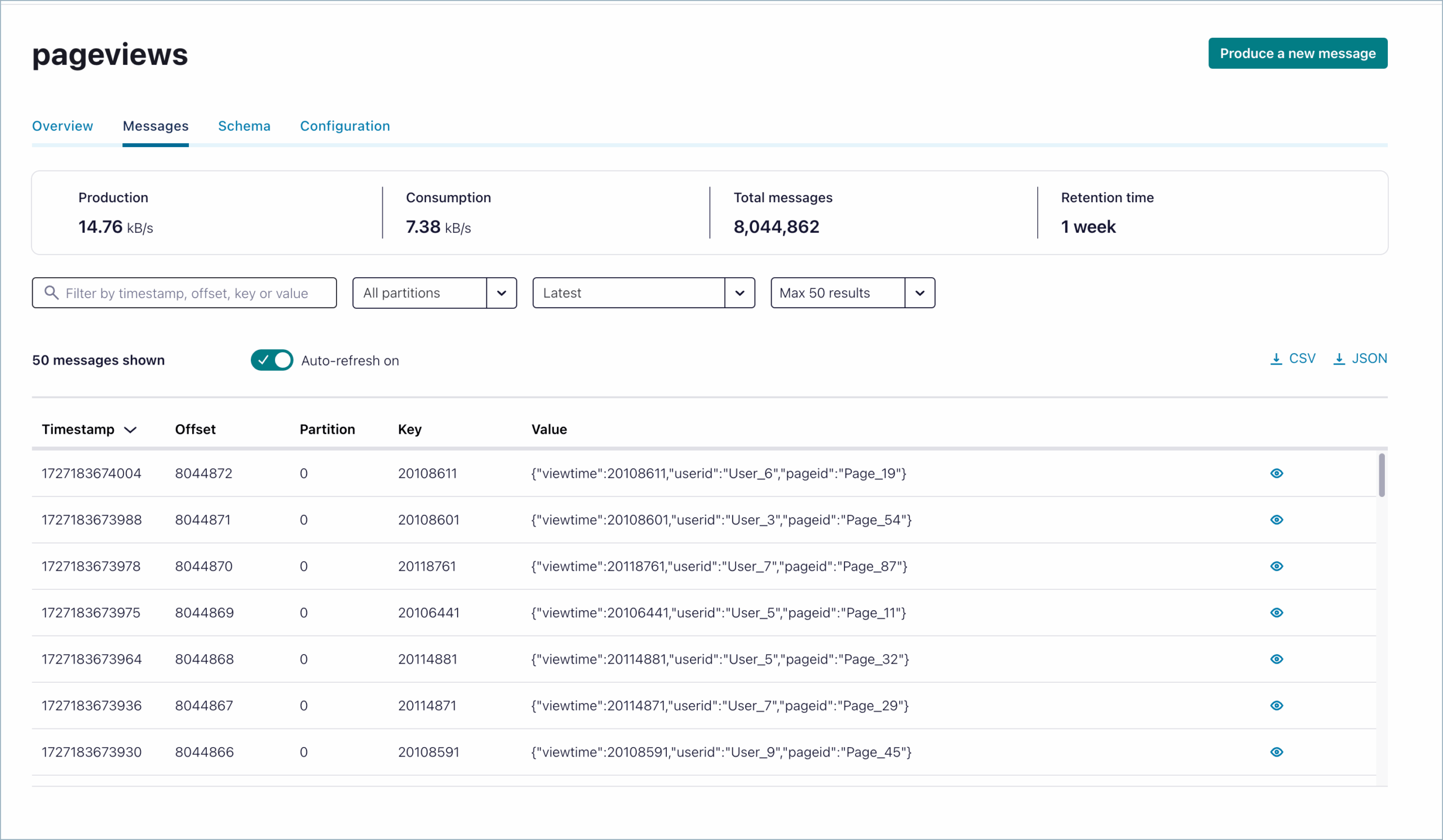
Source: Confluent
3. Amazon MSK
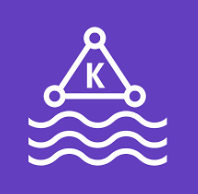
Amazon MSK is a fully managed service that simplifies running Apache Kafka workloads on AWS by handling infrastructure provisioning, maintenance, scaling, and security. It enables developers and operations teams to focus on building streaming data applications without the complexity of managing Kafka clusters themselves.
Key features include:
- Fully managed Kafka clusters: Automated provisioning, configuration, patching, and scaling of Kafka and Kafka Connect clusters.
- AWS service integrations: Native connectivity with AWS services for ingesting, processing, and storing streaming data without custom integration work.
- Enterprise-grade security: Encryption at rest and in transit, access control, and private connectivity within AWS networks.
- High availability and resilience: Multi-AZ deployments with automated failover, monitoring, and recovery to maintain uptime and data durability.
- Flexible data ingestion and delivery: Support for upstream data sourcing and downstream delivery through managed Kafka Connect and no-code integrations.
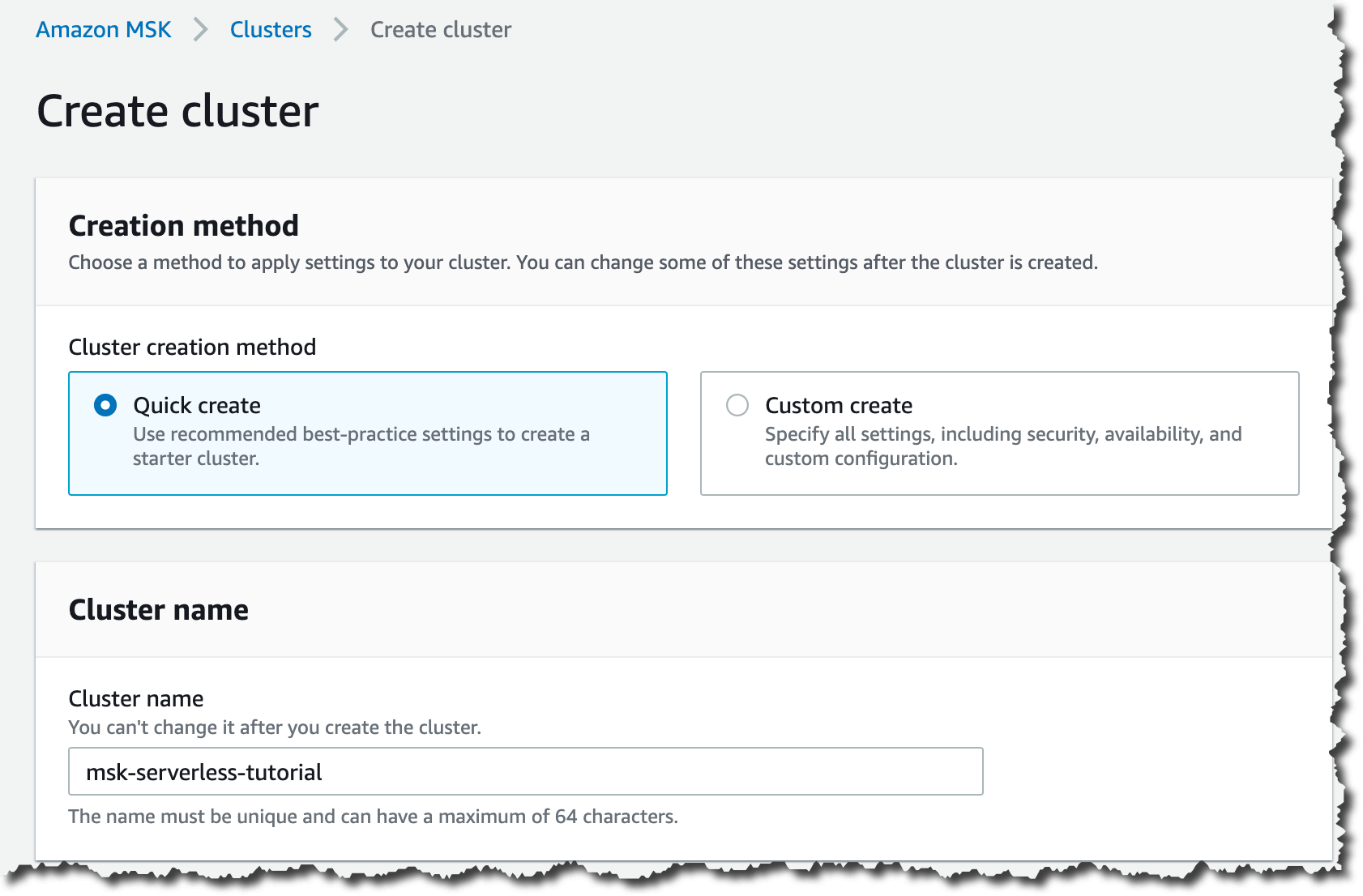
Source: Amazon
4. Aiven for Apache Kafka

Aiven for Apache Kafka is a fully managed, open source–based Kafka service that can be deployed on multiple cloud providers, including AWS, Google Cloud, Azure, DigitalOcean, and UpCloud. It delivers a streaming ecosystem for building event-driven architectures, real-time analytics pipelines, and AI/ML data processing workflows.
Key features include:
- Multi-cloud deployment: Can run Kafka clusters on AWS, Google Cloud, Azure, DigitalOcean, or UpCloud, with easy migration between providers.
- Integrated open source ecosystem: Includes Schema Registry, Kafka Connect, MirrorMaker 2, and Apache Flink for end-to-end streaming solutions.
- Automated operations: Provisioning, scaling, storage management, monitoring, upgrades, and security patches handled automatically.
- Tiered storage: Stores older, less-accessed data in lower-cost object storage for reduced costs and unlimited retention.
- High availability: 99.99% uptime SLA to keep streaming pipelines and microservices continuously operational.
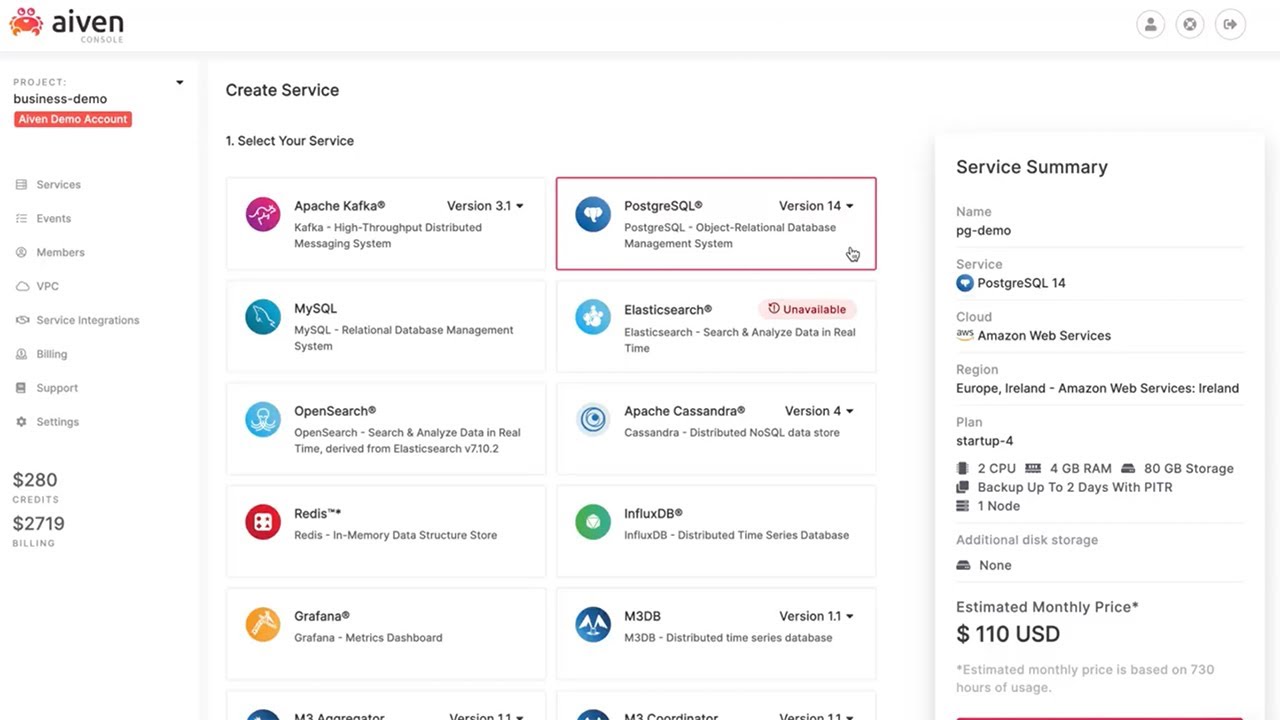
Source: Aiven
5. Redpanda Cloud

Redpanda Cloud is a fully managed, Kafka API–compatible streaming data platform designed for high performance, cost efficiency, and flexible deployment. It delivers an event streaming environment with automated provisioning, upgrades, monitoring, and partition balancing, removing the need for external dependencies.
Key features include:
- Multiple deployment models: Choose BYOC for full data sovereignty, Dedicated for single-tenant hosting in Redpanda’s cloud, or Serverless for instant, zero-base-cost clusters.
- Kafka API compatibility: Natively works with Kafka ecosystem tools, connectors, and clients without code changes.
- Cost efficiency: Uses fewer compute resources than Kafka and offers tiered storage for savings in retention costs.
- High performance: Optimized for modern hardware to deliver high throughput and low latency.
- Developer productivity: Integrated Redpanda Console for topic management, consumer group tracking, and data inspection.
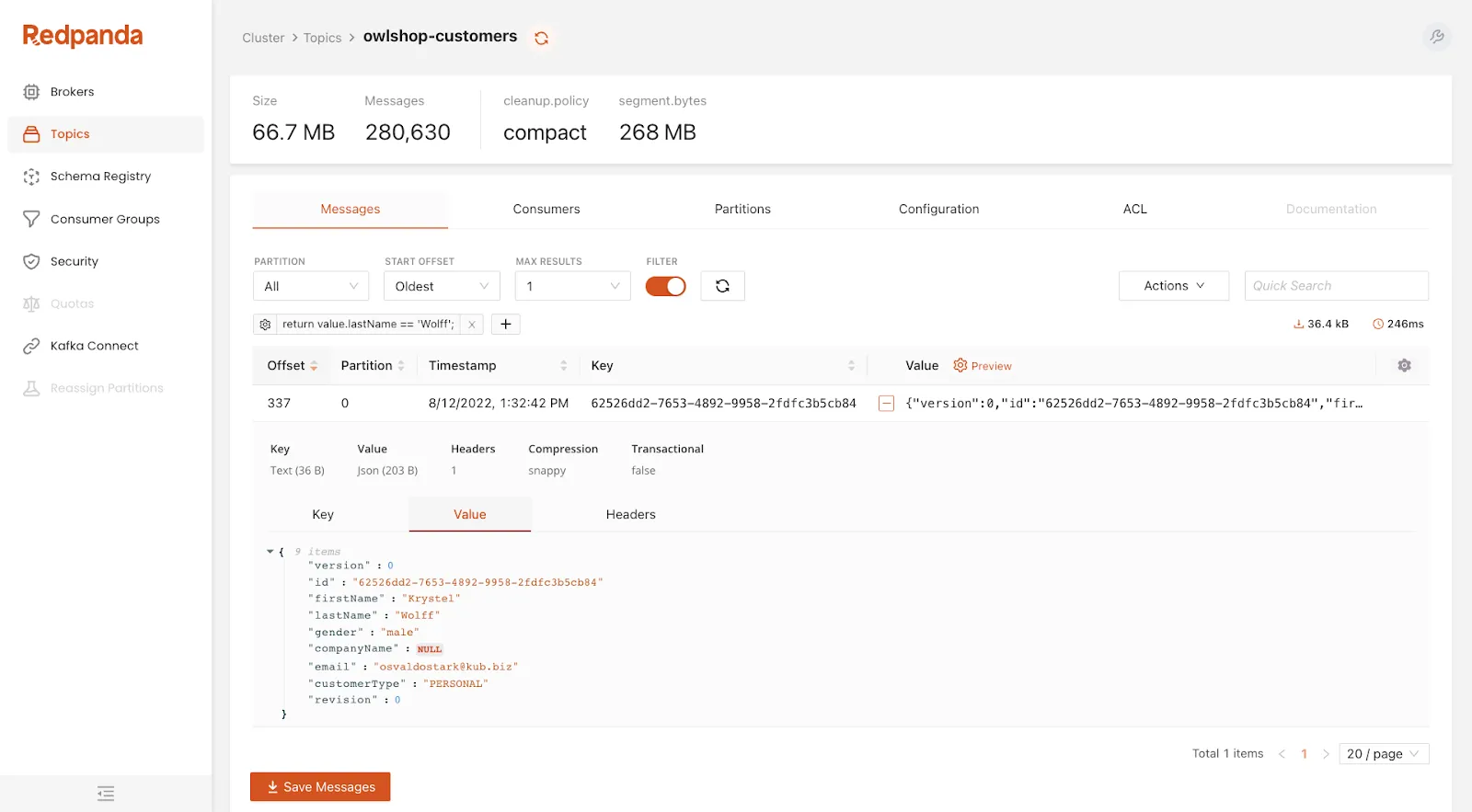
Source: Redpanda
Conclusion
Hosted Apache Kafka services provide a streamlined way to adopt real-time streaming without the complexity of deploying and maintaining distributed infrastructure. By combining automated operations, elastic scalability, built-in security, and expert support, these platforms enable organizations to focus on building data-driven applications and architectures. The result is faster project delivery, reduced operational risk, and the flexibility to scale seamlessly as data volumes and business requirements evolve.